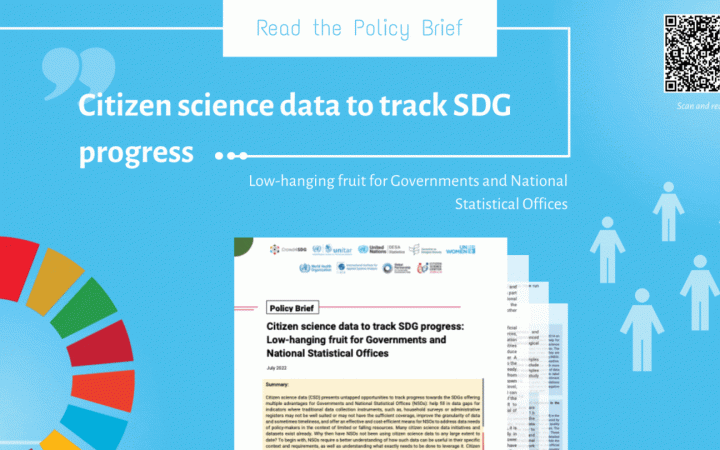Citizen science data (CSD) presents untapped opportunities to track progress towards the SDGs offering multiple advantages for Governments and National Statistical Offices (NSOs): help fill in data gaps for indicators where traditional data collection instruments, such as, household surveys or administrative registers may not be well suited or may not have the sufficient coverage, improve the granularity of data and sometimes timeliness, and offer an effective and cost-efficient means for NSOs to address data needs of policy-makers in the context of limited or falling resources. Many citizen science data initiatives and datasets exist already. Why then have NSOs not been using citizen science data to any large extent to date? To begin with, NSOs require a better understanding of how such data can be useful in their specific context and requirements, as well as understanding what exactly needs to be done to leverage it. Citizen science practitioners, for their part, need to better understand policy applications and know how to ensure that the generated data meets necessary quality standards. This Policy Brief aims to bring greater understanding to these issues by drawing on a research conducted as part of the EU-funded Crowd4SDG project with contributions from several international organizations and research centers. It shows how NSOs can give value to CSD benefitting official statistics, policy-making and citizen science communities and helping ensure that no one is left behind.
Elena Proden (UNITAR, coordinator), Karen Bett (GPSDD), Jillian Campbell (CBD), Haoyi Chen (UNSD), Sara Duerto Valero (UN Women), Dilek Fraisl (IIASA), Gabriel Gamez (UNSD), Stephen MacFeely (WHO), Yongyi Min (UNSD), Rosy Mondardini (CSCZ), and Linda See (IIASA).
Read the Policy Brief here.


